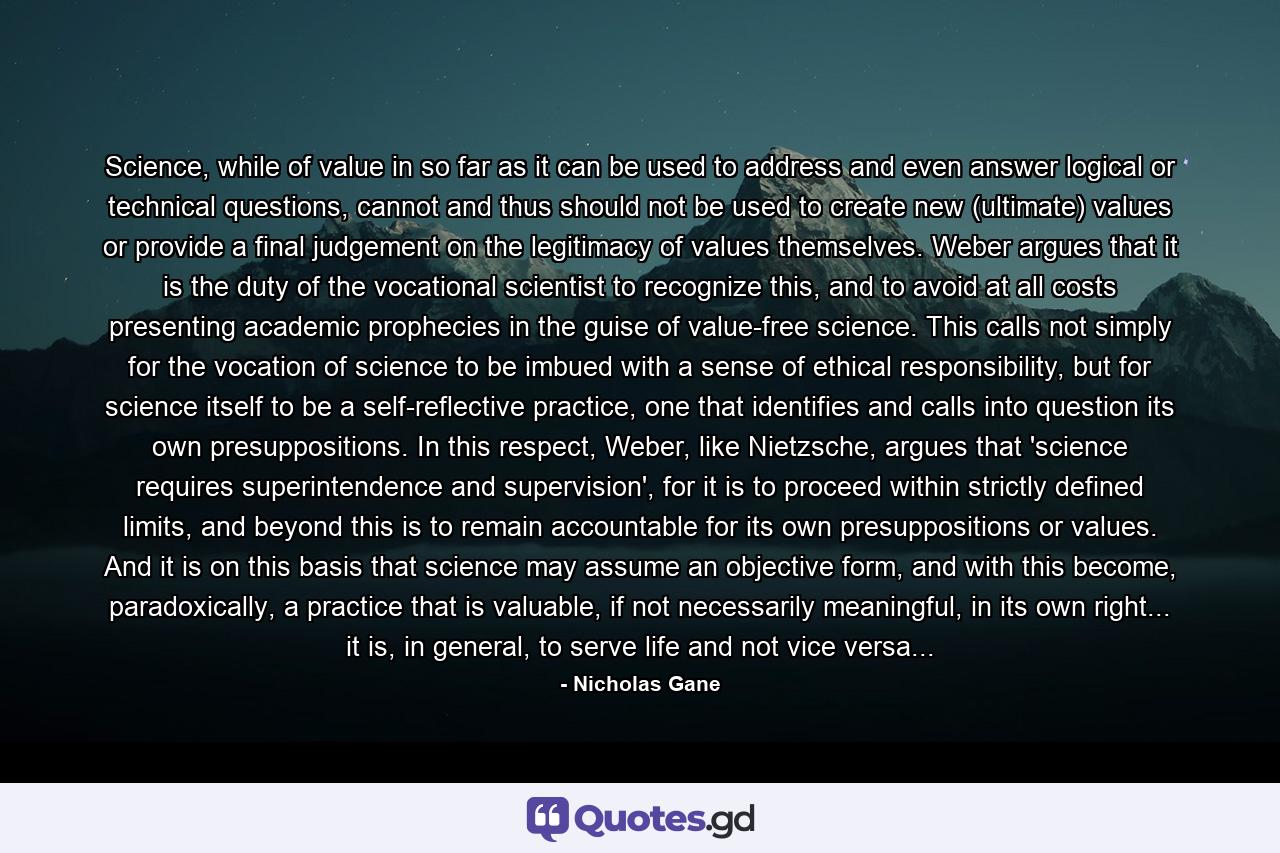Science, while of value in so far as it can be used to address and even answer logical or technical questions, cannot and thus should not be used to create new (ultimate) values or provide a final judgement on the legitimacy of values themselves. Weber argues that it is the duty of the vocational scientist to recognize this, and to avoid at all costs presenting academic prophecies in the guise of value-free science. This calls not simply for the vocation of science to be imbued with a sense of ethical responsibility, but for science itself to be a self-reflective practice, one that identifies and calls into question its own presuppositions. In this respect, Weber, like Nietzsche, argues that ‘science requires superintendence and supervision’, for it is to proceed within strictly defined limits, and beyond this is to remain accountable for its own presuppositions or values. And it is on this basis that science may assume an objective form, and with this become, paradoxically, a practice that is valuable, if not necessarily meaningful, in its own right… it is, in general, to serve life and not vice versa…
